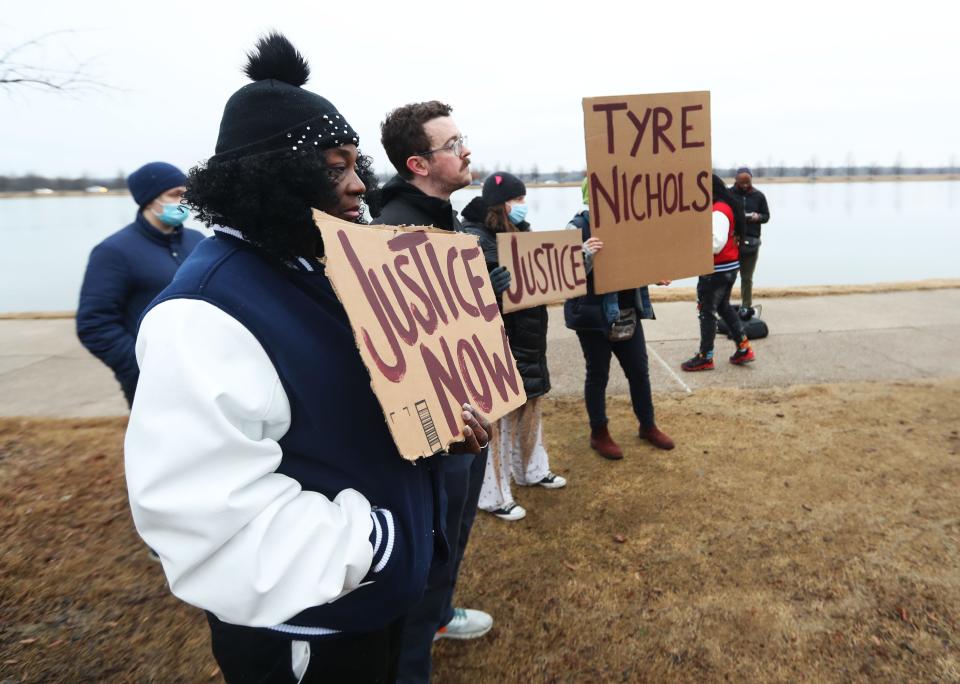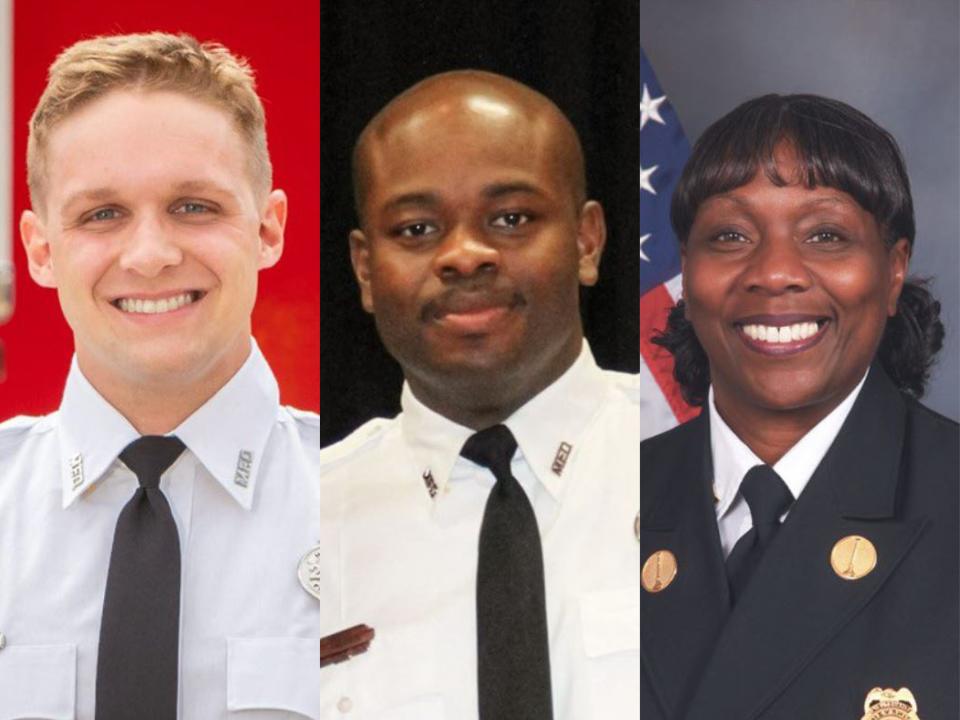The brutal death of Tyre Nichols: horror, grief and lessons learned | Norment
The death of Tyre Nichols after being beaten by Memphis police officers is sinister, sickening and sad. Making it even worse is that the offending officers are African Americans. The victim is Black, and the offenders are Black.
Many of us in Memphis and across the nation are grieving, and will continue to grieve for months, some for years.
The unarmed 29-year-old father, son and brother was tasered, pepper-sprayed, beaten, kicked and pummeled with fists by police during a traffic stop. He finally was taken to a hospital in critical condition and died of his injuries three days later.
Initially five policemen were put on leave, then fired, indicted, arrested and charged with seven crimes, including second degree murder and aggravated assault. I was shocked when the faces of the involved officers were flashed on the television screen. Like many, I assumed this was yet another case of White cops killing an innocent Black man.
Yet, the fact that the offenders are also Black does not make me, Nichols’ family or anyone else feel better. It was a vicious crime against an innocent Black man. Nichols had brain swelling, kidney failure, was intubated, suffered extensive bleeding, and his face was disfigured due to the severe beating.
More:I choose to embrace the story of Tyre Nichols the skateboarder and beloved son | Hill
Sign up for Black Tennessee Voices newsletter:Read compelling columns by Black writers from across Tennessee.
Brutality of Nichols’ death truly is cause for sadness, anger
After viewing videos of the incident, city and law enforcement officials were enraged. Memphis Mayor Jim Strickland said he was “sad and angry for the family.” David Rausch, Tennessee Bureau of Investigation director, said: “I am sickened by what I saw. It was absolutely appalling.” Memphis Police Chief Cerelyn “CJ” Davis called the officers’ actions “horrific” and “over the top.” Memphis NAACP president Van Turner said it was “gut-wrenching.” Nichols’ mother, RowVaughn Wells, said the policemen who killed her son “brought shame to the Black community.”

Nichols’ brother Jamal Dupree and long-time friend Angelina Paxton said they felt let down by the Black officers. “Knowing the history of police interactions with the Black community throughout time, these men took a position of power and instead of doing something to better the future and honor the past, they became no better than the days of Emmett Till,” they said in a statement. “They have let us all down. Justice will be served to them.”
Yes, those officers let us down as the nation focuses on Memphis and the brutal beating of a harmless man who loved his family, skateboarding and photographing sunsets.

Now, I am haunted by the images of Tyre Nichols being beaten savagely and dying in that hospital bed. Just as I am haunted by the image of Emmett Till’s mutilated body, by the vicious beating of Rodney King, by the image of Derek Chauvin’s beady eyes staring into the phone camera of a bystander as he knelt on George Floyd’s neck for almost nine minutes.
Like Nichols’ mother and many others, I am disappointed by the police officers and anyone else at that crime scene who may have witnessed what happened and didn’t intervene. Other Memphis Police officers are being investigated, and three employees of the Memphis Fire Department were fired for not following protocol. In addition, two sheriff deputies have been relieved of duties pending an investigation.

As we move into February, Black History Month, I can’t help but reflect on the fact that Black men and Black people in general continue to be imperiled by violence and injustice. The senseless killing of Black men affect our families, our communities, our nation – with emotional trauma, with frustration, with families and children who are greatly impacted by the loss of their husband, father, brother, son and often bread winner. Dreams are dashed, incomes slashed, and hearts broken. Some families never recover.
It seems that after each horrific episode, there is talk of police reform, new laws and how police and police departments can be made more accountable. In this case, there are key takeaways that should be noted.
Hear more Tennessee Voices:Get the weekly opinion newsletter for insightful and thought provoking columns.
Key takeaways from Nichols' murder
Police misconduct against Black people is rooted in institutionalized racism, regardless of the race of the officer. As noted in USA Today, the race of the officers involved is far less important than the race of the victim. Experts, activists and attorneys told the newspaper that a “historically biased culture of policing” puts Black people at risk regardless of an officer’s race.
Black officers are subjected to the same rhetoric, the same prejudiced stereotypes, the references to Black neighborhoods as crime-ridden, to Black citizens being inferior and more prone to break the law, references to Blacks being disrespectful and dangerous. Black officers should be more empathetic and understanding, but that is not always the case. Police reform advocates have been saying for years that regardless of race or ethnicity, the method in which police are trained and the inherent culture of policing impacts people’s minds and behavior.
The race of the policemen in this case, and in other cases, is not as relevant as the race of the victim. Black people are more likely to be mistreated by police than white people.
Swift action after a violent police encounter can bolster accountability and build trust with the community. It has been noted locally and nationally that MPD Chief Davis and other officials moved quickly in charging the initial five officers involved. That is unusual in Memphis and other cities where Black men have been assaulted or killed by police.
Some may argue that the city’s quick action was to lessen the possibility of violent protests. Others feel that once officials saw the videos of the incident, they were appalled and compelled to act quickly. Regardless, it was the right thing to do and has garnered praise from around the country. New York City mayor Eric Adams praised Memphis for acting “quickly and decisively” in arresting the officers. Nichols’ family attorney Ben Crump said: “We have a precedent that has been set here in Memphis, and we intend to hold this blueprint for all America from this day forward.”
As Black History Month begins, I can’t help but think of the many innocent Black men who over the decades have been brutalized by police, the very people who have sworn to serve and protect them. With the aid of body cameras and street cameras, officials must quickly investigate such cases and be transparent with the victims’ families and the public. No more delays and coverups.
A culture of accountability must be adopted by law enforcement. Strict oversight and swifter punishment are key to making police responsible. If an officer witnesses excessive use of force or other inappropriate behavior, they must speak up and intervene. When a police officer acts inappropriately, he or she must be held accountable, regardless of race and skin color.
Lynn Norment, a columnist for The Commercial Appeal, is a former editor for Ebony Magazine.
This article originally appeared on Memphis Commercial Appeal: Norment: What Memphis can learn from the brutal death of Tyre Nichols

